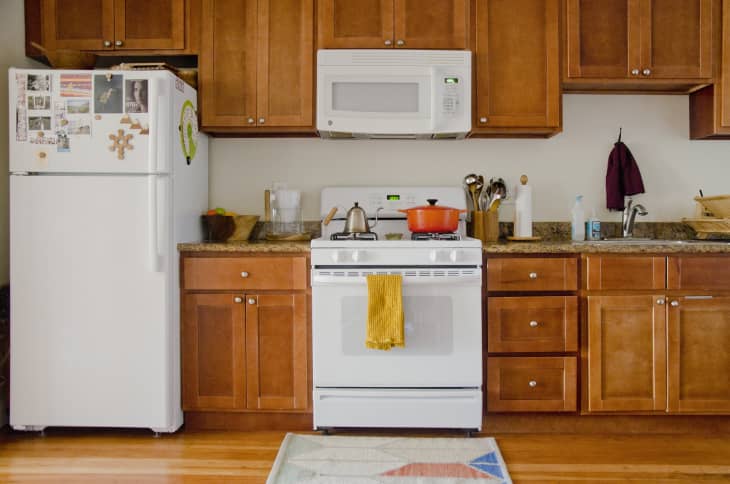5 Hidden Risks in Your Home Real Estate Agents Know to Watch Out For

Few experts know the ins and outs of a home’s lifespan better than real estate agents—they spend their days in and out of houses of all shapes and sizes.
But let’s face it: When it comes to spending money and time on our homes, most of us would rather focus on fun projects than maintenance.
“All too often, we show homes where the owner has spent money on fun things like a flower sanctuary, remote-control blinds, or a jet-spray shower while neglecting big structural issues,” says Ron Humes, a builder and owner of his own realty company in Lexington, Kentucky.
This can create problems when it’s time to sell.
“Before you add that koi pond in the backyard make sure to spend some time on the major systems in the home,” he adds. “Buyers will typically have a home inspection performed on the home and the home inspector is sure to bring any major defects to the buyers’ attention and these can be a deal killer.”
Here, five questions to ask yourself on an ongoing basis so you don’t end up with a huge to-do list when you’re ready to sell:
1. Is the plumbing in great shape?
One thing homeowners don’t realize is just how expensive—and damaging—water issues can be. The first place a savvy buyer is going to look is under the sink. “Buyers can tell how healthy a home is by looking there,” says Anthony Askowitz, a broker at RE/MAX Advance Realty II in Miami. “If the pipes are leaky or the wood is rotting underneath the kitchen sink, this is a quick indication to a potential buyer that the home isn’t well maintained.”
But it’s not just under the sink pipes that should be considered. “Plumbing problems can leave a homeowner up to their neck in stinky water and debt,” Humes says. “Supply lines (incoming) and waste lines (outgoing) can fail and cause major damage to the home’s interior and foundation.”
When it comes time to take care of the damage, you’re looking at the potential jack-hammering of floors, major excavations in yards, and demolition of interior spaces.
An easy way to avoid this? “Make it a point to have a regular inspection by a licensed plumber,” Humes says. “It’s definitely money well spent.”
2. How’s my HVAC system working?
An ounce of prevention is worth a ton of repair costs, especially when it comes to HVAC systems. “There are many things homeowners can do for little cost that can save thousands later,” Humes says. “For example, you should have your heating, ventilation, and air conditioning systems checked and change your filters regularly since a new system can easily cost $6,000 to $15,000.”
3. Is the roof airtight?
Always make sure to have your roof checked by a licensed roofer or your insurance agent after a major storm. “This will keep roof damage from leading to interior flooding and material damage,” Humes says. “And always make sure there is proper drainage away from your home’s foundation.”
4. Is the home’s septic system up to snuff?
“As recently as five years ago, the inspection of septic systems were often rather cursory,” says Jennifer Grimes, a licensed Realtor and owner of Country House Realty in Grahamsville, New York. “A red dye was flushed down the toilet, faucets were run for two hours, and if red didn’t double up out of the ground, you got the thumbs up.”
This is all the more reason buyers should have regular septic inspections. “Septics usually work great until they don’t,” Grimes says. “And when they don’t, it’s usually very bad news. We also ask our sellers to preemptively pump their septic tanks and ask the septic company to write up a quality report at that time, saving the buyer the hassle.”
5: Is everything working well in the electrical system?
“Most people assume that if the lights are on, all is good—but that may not be the case,” Humes says. “Any product or system can wear out over time, including electrical systems.”
Electrical components often need to be replaced due to malfunctions or as upgrades when an addition or renovation is taking place. Not only can this be pricey, it can be quite a challenge. Hume says electrical components cannot always be found to directly replace the older equipment.
His advice to safeguard yourself and your investment? “Have the home routinely inspected by a licensed electrician to determine issues in advance.”
More great Real Estate reads:
- 5 Money Lessons You Can Learn From People Who Bought Their Own Homes in Their 20s
- You Can Rent Lucille Ball and Desi Arnaz’s California Home for $500/Night
- How to Prevent Buyer’s Remorse When Buying a House, According to Therapists
- The 4 Construction Shortcuts Every New Home Buyer Should Watch Out For
- The Frustration-Free Guide to Getting (And Understanding) Your Free Annual Credit Report